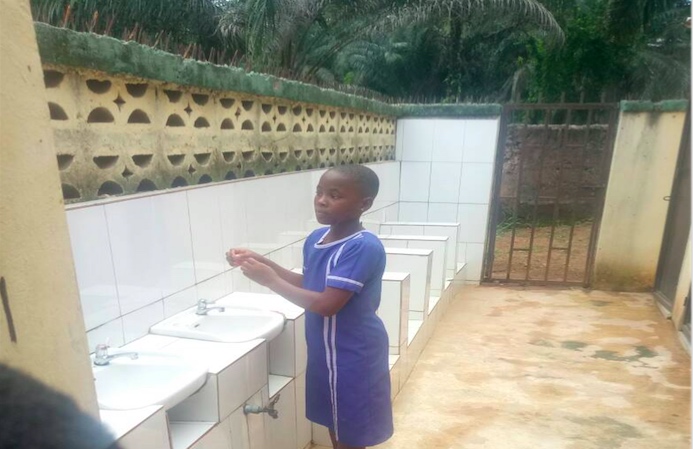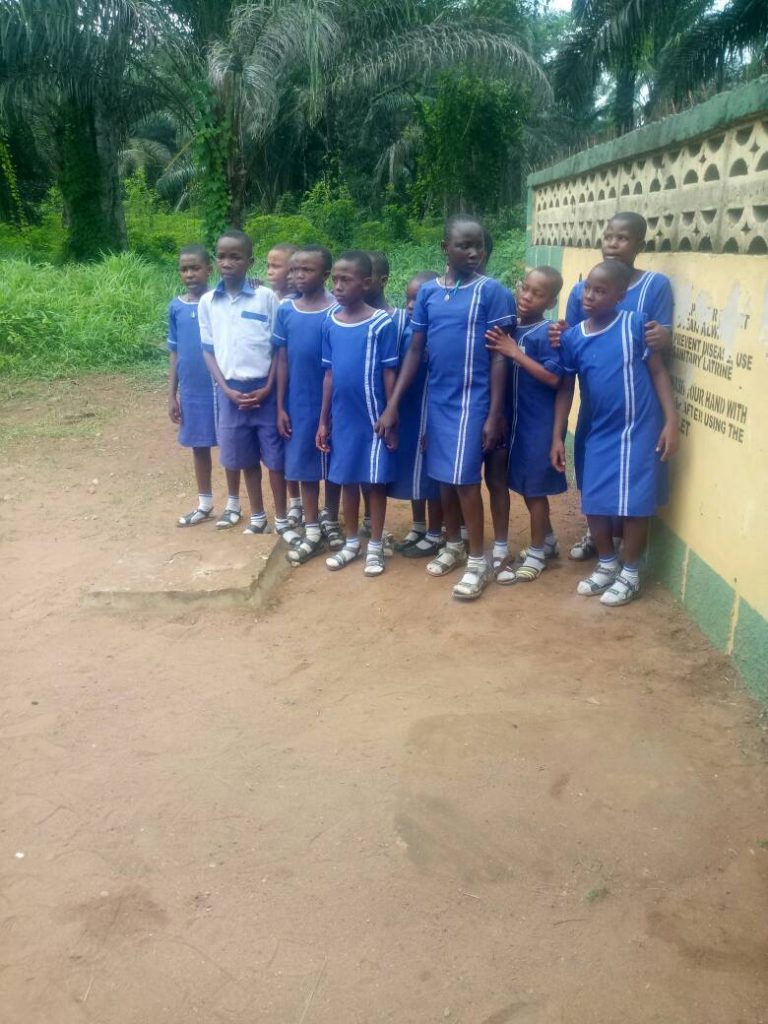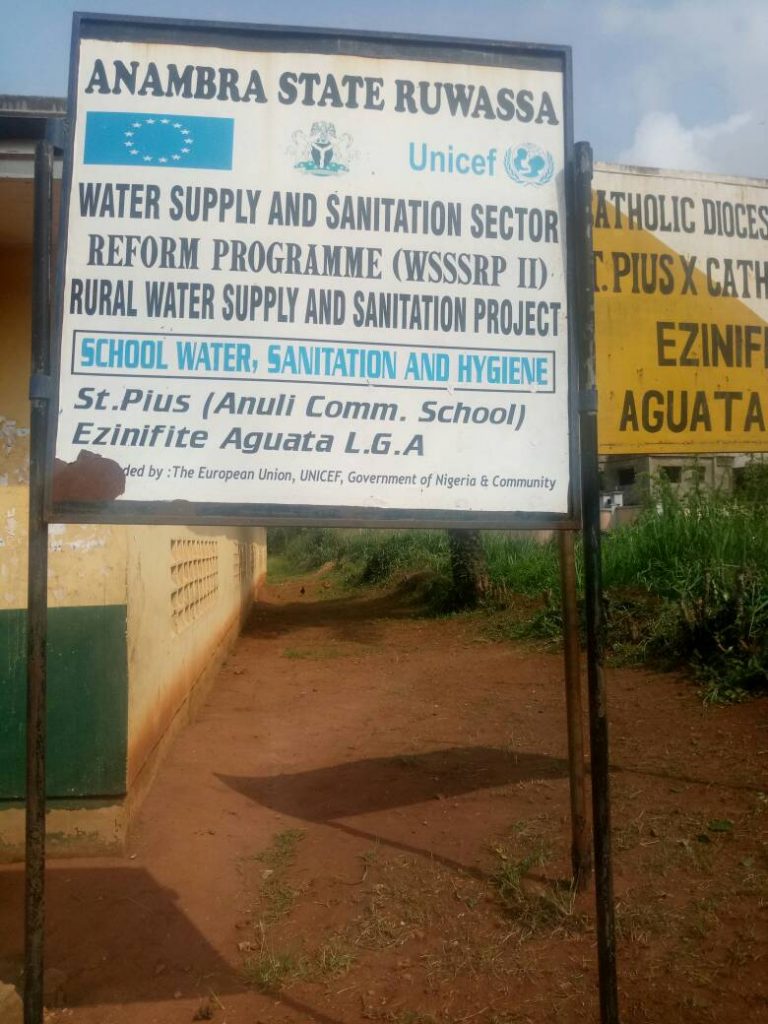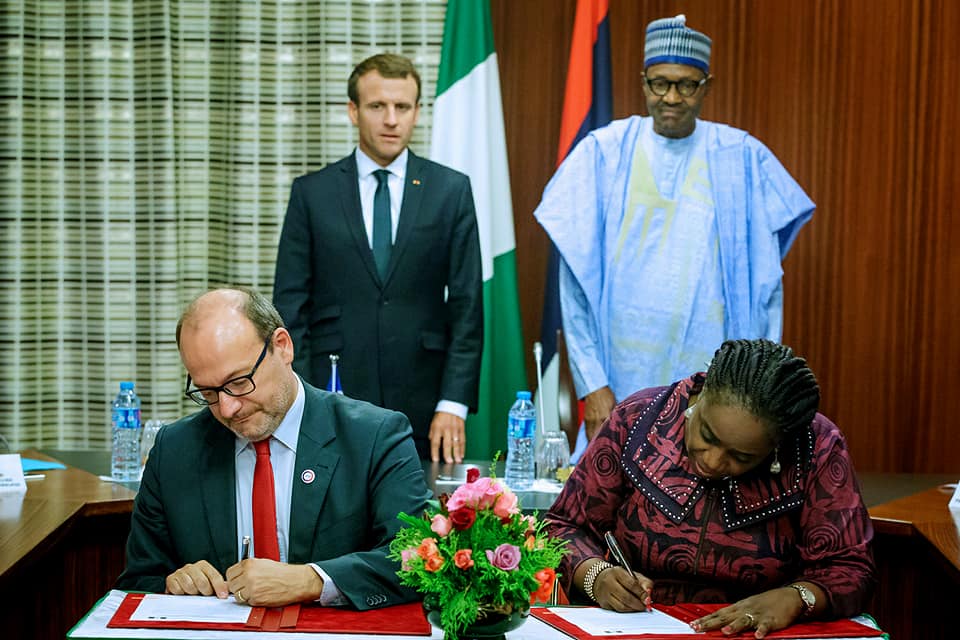
By Tosin Kolade
“When I am on my period, I tell my Head mistress, she gives me sanitary pads, and also teach me how it is used.
“We have separate toilets for boys and girls in our school, since the provision of water, we are now free to attend schools early, we do not need to spend time fetching water for our families.
Those are the words of ‘Ambassador’ Emmanuela Ezeakachukwu, an 11-year old girl of Anuli Community Primary School, Ezinifite, Aguata Local Government Area, Anambra State in South-East Nigeria.
She, like other pupils in the school have become members of the Environmental health club, they are those in charge of maintaining toilet facilities, ensuring hygiene practices amongst others.
Favour Maduekwe, a 13-year old primary five pupil of the same school said, she’s now comfortable attending school even when she is on her menses.
According to Maduekwe, school has become interesting to her, saying with the construction of separate toilets for girls and boys, with access to water, she can now change pads while in school.
She noted that prior to provision of water facilities by EU/UNICEF project in the state, majority of them weren’t free to attend schools.
“I am a member of the environmental health club also, we ensure that toilets are used properly and maintained, we make sure pupils are assigned to. We are very happy with the provision of water to the school,” she added.
The club, also ensures that hand washing culture is practiced at critical times in the school.
She noted that since the provision of tippy taps in the school premises, most of the children have maintained the culture.
The Head Mistress of the school, Mrs Francisca Onyebuchi, confirmed that school enrollment has increased,

lateness to school has also improved.
According to her, pupils no longer bring water from homes, should they want to make use of the toilets in the school.
She noted that the children were selected based on their capacity and commitment to health promotion, adding that this has transformed them into ‘hygiene agents’ to create awareness in their homes.
Corroborating this view, Mr Victor Ezekwo, the Programme Manager for Anambra Rural Water Supply and Sanitation Agency (RUWASSA), said that the state government, through the UNICEF-sponsored Water Sanitation Hygiene (WASH) project, had intervened in four Local Government Areas of Anambra East, Aguata, Nnewi North and Idemili South.
He said that 50 schools had also been provided with WASH facilities which include separate toilets for males and females.
According to him, 57 solar-powered rural water supply boreholes are at various stages of completion in these local governments.
Ezekwo, however, decried the spate of water facility vandalism at some sites in the state, saying it was hampering efforts by the government and donor agencies at solving the water needs of the people.
He, therefore, advised host communities to take full ownership of these installations to enhance the sustainability of the interventions.
Similarly, Mr Jonathan Ekhator, UNICEF WASH Officer, Enugu Field Office, expressed delight over the implementation level of WASH projects in the state.
Ekhator said that remarkable success had been recorded in the area of attitudinal change of the people towards unhealthy practices such as open air defecation and poor menstrual hygiene.
He noted that six states of Anambra, Cross River, Jigawa, Kano, Osun and Yobe are benefiting from the

European Union Water Supply and Sanitation Sector Reform Project (WSSSRP) to improve access to water and sanitation in the country.
He hinted that the Programme which commenced in 2012, has an overall target of providing water supply for no fewer than 1.5 million underserved persons in rural areas.
According to him, lack of water and sanitation has been known to be a leading cause of preventable diseases such as cholera and diarrhea, especially among under five children.
Ekhator said since Programme inception, through the local government area-wide approach, no fewer than 2,527 Water, Sanitation and Hygiene (WASH) Committee members have been formed to train and maintain water facilities in the area.
He noted that this would help to promote sustainability and also inclusiveness to ensure that no one is left behind.
The WASH Officer said there was the need for all stakeholders to partner to increase access to improved sanitation and hygiene promotion, an overall goal of moving up the sanitation ladder.
Experts believe that access to potable water and sanitation at all tiers of government has a larger impact on health, nutrition and weak being of a country’s populace.











